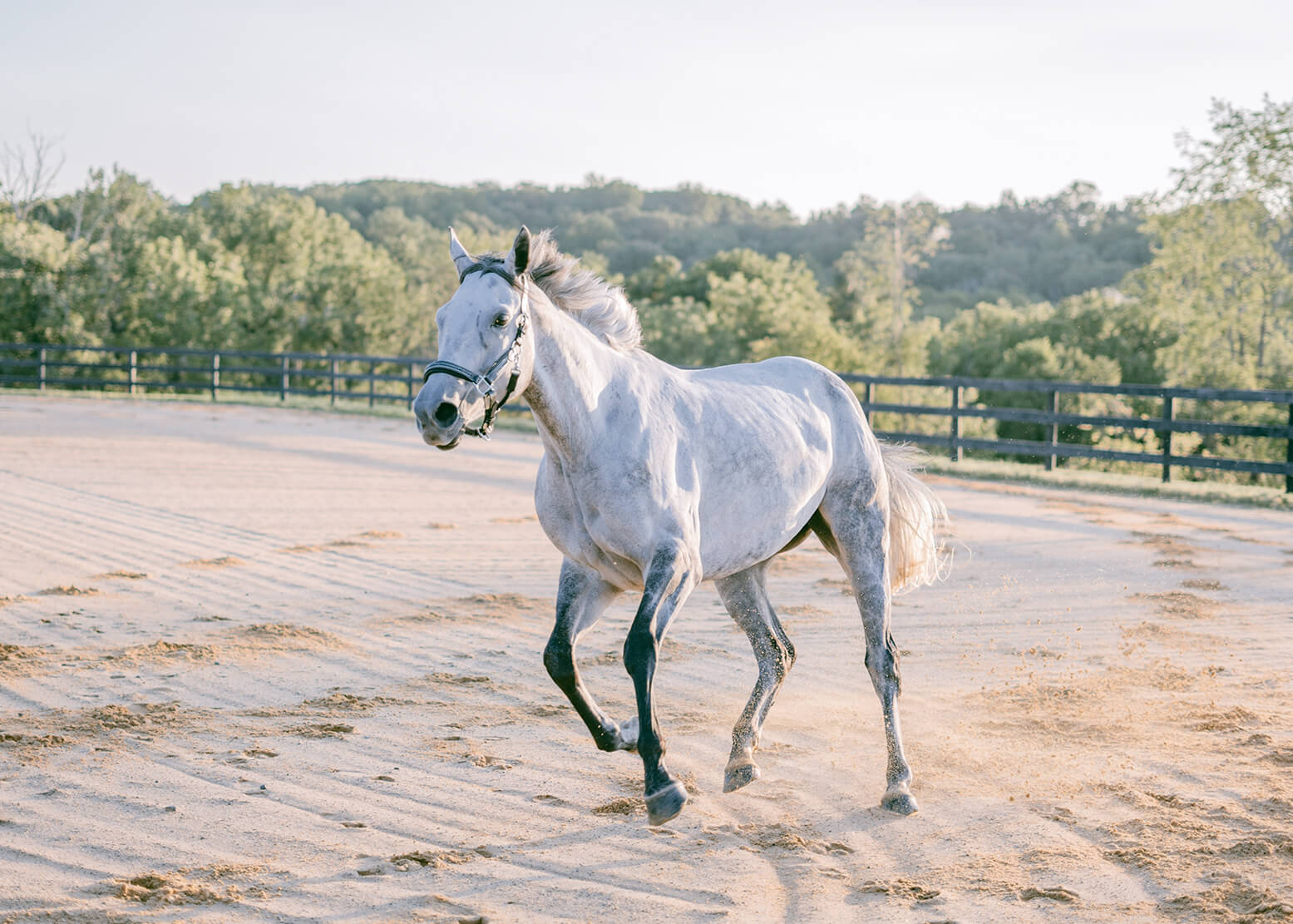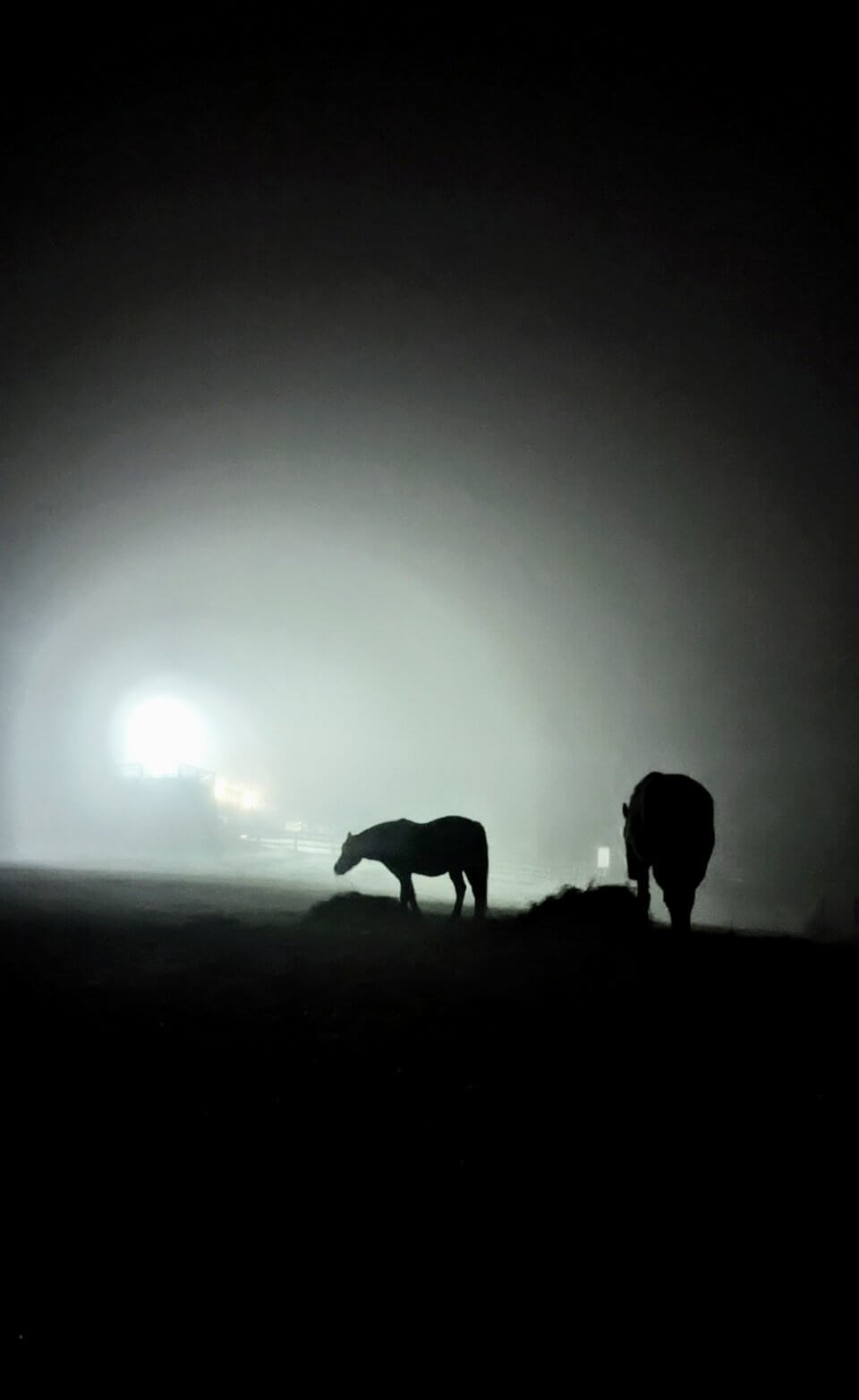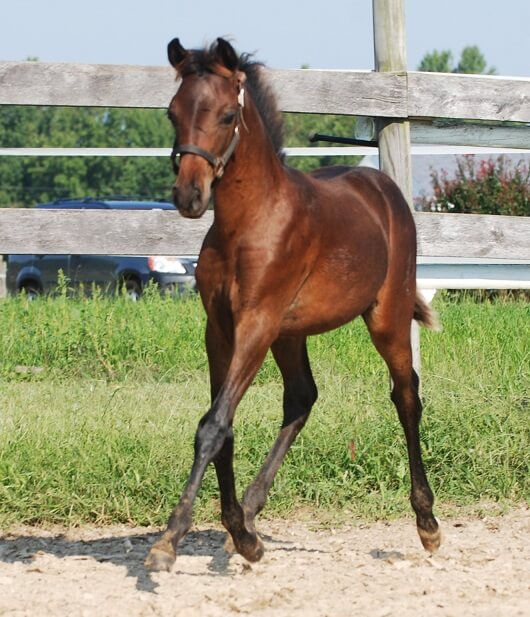
Many people dream of owning a horse. I can understand the appeal, they are amazing animals and I have had the best moments of my life with them. So it isn’t uncommon to see this question posted online. It’s some variation of this:
I am thinking of buying some land and getting a horse. How do I get started? What do I need to know?
Someone wants to get a horse, but they have no background on horses at all. I think there’s a little bit of a mindset that a horse is like an ATV or some other sporting equipment – something to acquire to have some fun every now and then, but not a serious commitment.
As someone who is obsessed with horses, it’s a little jarring to see such a casual attitude about getting a horse, as they are huge commitments. When you get a horse, you’re not just getting a pet, you’re getting a whole new lifestyle.
But, they don’t know that yet, and I am not shaming them for not knowing. They did ask, didn’t they? They deserve to know the whole truth, without judgement.
Horses are wonderful animals, and it’s amazing to have them. There’s no question about that. I highly encourage more people to get involved with horses. A rising tide raises all ships, and all of us benefit from more interest in horses, whether it be friends to ride with, money that goes to professionals, or more interest in saving land for farms and trails. So if this is you, asking some variation of the above question, I’m going to provide my best advice for how you could get started with horses, riding, and ownership.
Start with a Minimal Investment
Before you go and buy that land or commit to buying a horse, take a trial to make sure you actually want to ride horses. Taking lessons at a stable is the easiest and cheapest way to be involved with horses. You’ll learn to ride and handle a horse, and basic care. These things cannot be skipped! You will get no enjoyment out of a horse that you don’t know how to handle, and it is very hard to learn these things without an instructor to guide you.
Beginner riding lessons usually cost between $40 and $70, depending on where you are located. If you are baulking at paying this, horses might not be for you. Horses get expensive very fast, and this is a minimal amount to pay for learning very important information.
In addition to lessons, you can join a local riding club. Usually the fees are minimal for non-riders, and there are bound to be some people in the group willing to help guide you. If you haven’t already found a place to take lessons, they could recommend a place.
Some groups are The Old People’s Riding Club, or Pony Club, which has adult clubs. If you already have an idea of what kind of riding you want to do, you could find a local organization to do that. In my area, there’s trail organizations, dressage groups, working equitation, plus tons of other ones. Search online for your area, or look on facebook, and you’re sure to find some people near you. Just tell them you are interested in horses and are looking for a place to ride, and they’ll be thrilled to help you. To continue the relationship, ask them about their horse and what they love most about riding.
Through both your instructor and your new friends, you’ll have a pool of wisdom to make sure you make good choices with horses. Most of these people love talking about horses (otherwise, what a strange group for them to be a part of), so they will be happy to discuss best practices, and tips and tricks with you. Plus, it’s just amazing to know lots of horse people. You’ll now have friends to go riding with!
Do Research
At this point, information is super easy to find. It’s posted all over the internet, and there’s plenty of books, too. When I was a kid and having a horse seemed like fever dream, I read every horse book I could get my hands on. That knowledge helped me immensely when I finally did get a horse.
So spend the time to learn about horses. Read books, join forums, listen to podcasts. There’s tons of knowledge out there for anyone willing to take it in.
Some of the books I read as a kid that helped me out (affiliate links):
Horsekeeping on Small Acreage by Cherry Hill – For preparing your property for horses.
The Ultimate Book of the Horse and Rider – The title isn’t lying! Describes everything about horses and care, with lots of photos.
The Complete Horse Care Manual by Colin Vogel – Similar to the above, but definitely not an ultimate. Smaller, but good information.
Basic Horsemanship English and Western by Gaydell Collier – Good information for beginning riding.
The USPC Manual of Horsemanship: Basics for Beginners – The United States Pony Club sets the standards for good horsemanship. This book advises proper care, handling and riding while remaining safe. While it’s intended for children in the club, it’s appropriate for adults, too.

Buy an APPROPRIATE Horse (no Babies!)

Babies are cute, quirky, and fun. They are also one of the worst ages to buy as a newcomer to horses. All horses can be wild and unpredictable, but baby horses haven’t been taught how to behave yet, so they have no restraints and no respect for humans. By buying a foal you’re either committing to years of a professional training your horse to behave and be ridden, or risking serious injury, possibly death.
They are cute and playful when they are little, but as they grow up, they are still cute and playful but with the strength of a thousand suns. They can drag you, kick you, bite you, and make you seriously fear for your own safety. If you don’t know what you’re doing, there’s very little fun to be had. Just avoid this age group, and get something older and trained.
And please do not buy your child a foal so “they can grow up together.” Same principles apply, but this time you are risking your child’s safety.
The only possible way I see this situation going well is if the baby horse is under the care of a professional who will train you and the horse. It would be costly, but it would be the only way to stay safe and have fun.
But, be wary of any trainer that suggests you do this. It’s a very suspicious thing for a trainer to suggest. Buying a baby means you need to spend months to years of board but will be unable to ride, and then you’ll need to pay for training. Naturally, you’d need to pay that trainer all this money.
It is highly likely that the trainer is trying to squeeze a whole lot of money out of you.
Be Prepared for the Commitment
Horses cost a lot of money, which is pretty well known. But they also cost a lot of time. Your whole life, basically.
Riding a horse is not a gentle hobby, to be picked up and laid down like a game of solitaire. It is a grand passion. It seizes a person whole and once it has done so, he will have to accept that his life will be radically changed.
Ralph Waldo Emerson
If you aren’t looking for a huge time sink, just stick with the lessons, where you only show up once a week, and then the rest of the time you can give no thoughts to what a horse requires. Horses take daily care, which sounds like it might be manageable, until you’re having to go out in the pouring rain to bring in muddy, prancing horses that are threatening to knock you over. Or until you were planning to take a vacation, but there’s either no one to feed your horses while you’re gone, or the cost of it makes your vacation unobtainable. Or you’re sick, and you just want to close your eyes and rest, but the horses need to be fed. Or it’s cold, and you don’t want to ride anyway, but the horses still need care.
That’s not to say that it’s all work and no fun. It’s lot of fun. So much fun, that you’ll find yourself doing nothing but riding and taking care of horses. Which sounds wonderful, until your family gets mad that you aren’t spending time with the kids, or you’ve neglected your job, or you were four hours late coming home from the barn ….again.
Basically, it’s easy to become obsessed with your horse. It’s easy to love and want to be around your horse. In fact, I encourage it! The real problem comes when you’re not committed to the time it takes to care for the horse. When you think it only needs minimal attention, and then it becomes neglect.
Horses need a lot of attention. They need grooming, their areas need to be cleaned, their hooves need trimming and/or shoeing, they need medical care and they are very rough on their fencing and/or barn, so that will need repairing. Basically, this is not like getting a gerbil. This is an animal that has extensive needs and requirements. It’s not a pet to be acquired casually. You really need to be prepared for how much work and money goes into housing a horse properly.
Horses are wonderful creatures to own, and I get so much enjoyment out of mine. I encourage all who are thinking about it to test it out, and see if horses are right for them. Remember, start with lessons, find a guide/mentor, research, don’t buy a baby, and be prepared. If you follow this path, you’ll be very prepared for horse ownership, and you’ll likely have a wonderful, fulfilling life with horses.
Good luck!
More on Managing Your Horse Journey
I’m in lessons, when should I be advancing?
What do I need to groom a horse?

How Much Does it Cost to Own a Horse? - An Equestrian Life
[…] Getting Started with Horses […]